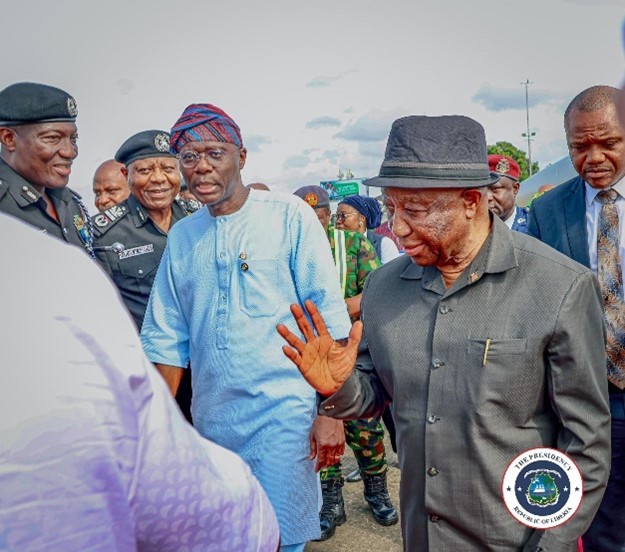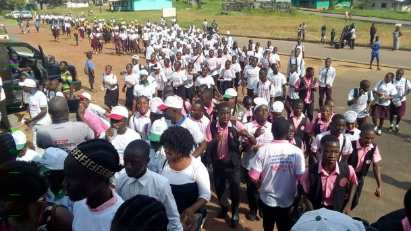The President of the Republic, Dr. George Manneh Weah, has been making a strong case for economic recovery for Liberia and other developing countries to the world’s economic powers amid the ripple effects of COVID-19, the war in Ukraine and other global adversities.
Speaking July 7, 2022, at the International Development Association (IDA) for Africa summit, organized by the World Bank Group and the government of Senegal, President Weah reminded participants that the summit is being held in the wake of two years of unprecedented and brutal negative impacts of the COVID-19 pandemic, and the current compounding ripple effects of the Russia-Ukraine war.
He said, in addition to the lingering impacts of the Ebola virus disease, COVID-19 pandemic and the Russia-Ukraine war, the Mano River Union sub-region has been facing a complex situation of providing commodities that are imported.
“Our challenge is to identify the appropriate policy nexus to deal with this erupting situation,” the Liberian Chief Executive said. “Liberia has an economy that is dependent upon food and oil imports, and is currently faced with rising prices of commodities as a result of the Russia-Ukraine war.”
He said the rise in the cost of oil will have a severe adverse impact on the environment, as people will seek alternative means for energy. The longer the war in Ukraine persists, the more the environment will be affected.
President Weah expressed the hope that IDA’s objective would place Africa in a place of honor.
“The plan should aim at pulling Africa out of the current dependency syndrome,” said the Liberian Leader.
“Together with you, our development partners, we should aspire for sustainable development and robust capacity-building. Our economies should be diversified to promote genuine people-centered policies that are based on the principles of good governance, transparency, and equality.”
He pledged Liberia’s commitment to the ideas and programs inscribed in the Abidjan Declaration of the IDA for Africa 2021 Summit, and support to the implementation process between now and 2025.
“We are assured that it will succeed. And that is why we have come to this summit to support its robust implementation,” he maintained. President Weah hailed the important work being done by the World Bank Group’s International Development Action (IDA) in supporting our efforts to combat Ebola, COVID-19 and other pandemics that have afflicted African countries and economies.
President Weah used the occasion to update the international community gathering at the summit of Liberia’s transformational policy during the replenishment period, stating that it will focus on health, education, agriculture, digital economy, youth and women empowerment, roads and ports, energy and gender. These sectors are cardinal to our national development plan, the “Pro-Poor Agenda for Prosperity and Development”, which is a national program that runs from 2018 to 2023.
With respect to the health sector, he said, “We efficiently utilized the experience gained in combating Ebola in the fight to control and eliminate COVID-19, and we are improving on our programs in readiness for future pandemics, as well as improving our healthcare delivery system.”
He told the assembly that Liberia has also increased access to school-based services by the provision of nutritional packages for students and building the capacity of teachers, as well as by the establishment of centers to enhance research.
“Creating the environment for the implementation of the Food Safety Act, the Fertilizer Act and validating the Rice Development Act are some of the measures that my government is implementing to ensure food production and security,” Dr. Weah said.
He added, “On the economic front, the promotion of electronic payments and digitization of the Liberian economy, in collaboration with some of our key development partners, is an urgent and paramount imperative. Also, increasing credit to the private sector, and ensuring the stability of the financial system are necessary initiatives that are well underway.”
Being mindful that infrastructure is the bedrock for national development, he noted that his government is keen on road connectivity throughout the country, which will facilitate easy movement and access to commodities and services, as well as the development and upgrading of seaports and airports.
“We are also focused on increasing electricity generation, transmission and distribution in the urban and rural areas,” the Liberian Chief Executive stated.







